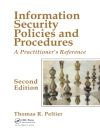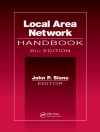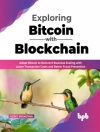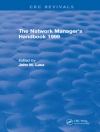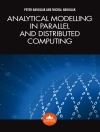The Internet of Things (Io T) is a network of devices and smart
things that provides a pervasive environment in which people can interact with both the cyber and physical worlds. As the number and variety of connected objects continue to grow and the devices themselves become smarter, users’ expectations in terms of adaptive and self-governing digital environments are also on the rise. Although, this connectivity and the resultant smarter living is highly attractive to general public and profitable for the industry, there are also inherent concerns. The most challenging of these refer to the privacy and security of data, user trust of the digital systems, and relevant authentication mechanisms. These aspects call for novel network architectures and middleware platforms based on new communication technologies; as well as the adoption of novel context-aware management approaches and more efficient tools and devices.
In this context, this book explorescentral issues of privacy, security and trust with regard to the Io T environments, as well as technical solutions to help address them. The main topics covered include:
• Basic concepts, principles and related technologies
• Security/privacy of data, and trust issues
• Mechanisms for security, privacy, trust and authentication
• Success indicators, performance metrics and future directions.
This reference text is aimed at supporting a number of potential audiences, including
• Network Specialists, Hardware Engineers and Security Experts
• Students, Researchers, Academics and Practitioners.
Inhoudsopgave
Part I: Security and Privacy in Io T: Technologies and Frameworks.- Chapter 1. Managing Cyber Security Risks of SCADA Networks of Critical Infrastructures in the Io T Environment.- Chapter 2. Energy-Perceptive Authentication in Virtual Private Networks using GPS Data.- Chapter 3. Mitigating Threats and Vulnerabilities of RFID in Io T Through Outsourcing Computations for Public Key Cryptography.- Chapter 4. Multidisciplinary Intel Fusion Technique for Proactive Cyber-Intelligence Model for the Io T.- Chapter 5. Countering the Io T-Powered Volumetric Cyber Attacks with Next Generation Cyber Firewall: Seddulbahir.- Chapter 6. Blockchain for Ensuring Security, Privacy and Trust in Io T Environments: The State of The Art.- Chapter 7. A Novel Quantum Encryption and Authentication Framework integrated with Io T.- PART II: Privacy and Trust in Io T: Healthcare applications and Io V.- Chapter 8. Internet of Things in the Healthcare Sector: Overview of Security and Privacy Issues.- Chapter 9.A Comparative Study in the Application of Io T in Health Care: Data Security in Telemedicine.- Chapter 10. Trust Management for Software-defined Heterogeneous Vehicular Ad hoc Networks.- Chapter 11. A Novel Privacy Preserving Scheme for Cloud-Enabled Internet of Vehicles Users.- Chapter 12. Securing Packet Transmission through Trusted Shortest Network Path using Fuzzy Forecasting for Mobility of MANET Nodes.
Over de auteur
Prof. Zaigham Mahmood is a Senior Technology Consultant at Debesis Education UK and a Professor at Shijiazhuang Tiedao University in Hebei, China. He also holds positions as a Foreign Professor at the NUST and IIU in Islamabad, Pakistan. He has previously served as a Reader (Associate Professor) at the University of Derby, UK, and Professor Extraordinaire at the North West University Potchefstroom, South Africa. Among his many publications are the Springer titles Guide to Ambient Intelligence in the Io T Environment, Fog Computing, Smart Cities, Connected Environments for the Internet of Things, Software Project Management for Distributed Computing, Requirements Engineering for Service and Cloud Computing, Connectivity Frameworks for Smart Devices, Data Science and Big Data Computing, Cloud Computing: Challenges, Limitations and R&D Solutions, Continued Rise of the Cloud, Cloud Computing: Methods and Practical Approaches, Software Engineering Frameworks for the Cloud Computing Paradigm, and Cloud Computing for Enterprise Architectures.


